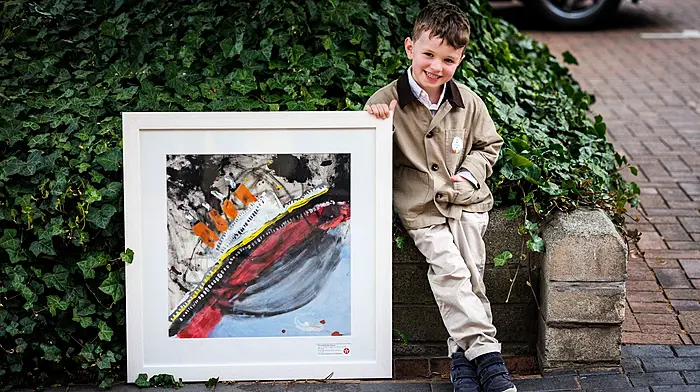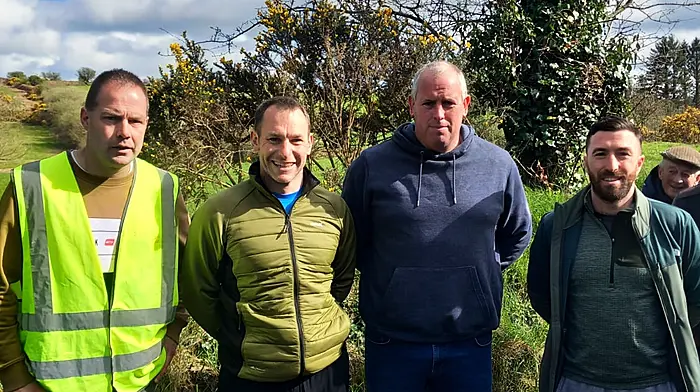EDITOR – While bird lovers flock southwards to catch sight of the exotic Eurasian Hoopoe, you need go no further than a garden or park to spot an equally awesome avian.
The magnificent magpie, also known as Pica Pica or Snag Breac, has been praised as one of the smartest creatures on the planet.
These clever corvids are master nest builders, constructing their domed homes from twigs and mud and lining them, for comfort and insulation, with feathers and moss.
They are said to be the only Irish bird to make a nest with a roof.
Like the Hoopoe, magpies have some of the prettiest plumage, with a smart black and white predominance, enhanced with glimmering greenish-blue iridescence.
Their long tail impressively fans out into a diamond shape to complete the eye-catching look.
Magpies are relatively recent residents here. It is believed they arrived in the late 17th century, flying, or blown over in a storm, from Wales to Wexford.
They deserve as much adulation as afforded to the Hoopoe but instead, they are the target of constant persecution.
Not only are they shot out of the sky but also captured in cruel Larsen traps.
These abominations use a permanently confined magpie in desperate distress to lure in others.
They land on a collapsing platform, fall through and find themselves trapped too.
Their freedom suddenly stolen, they suffer fear and stress before being pulled out and killed.
Hopefully the new Nature Minister, Christopher O’Sullivan, a self-professed twitcher and bird enthusiast, won’t be reluctant to ruffle some feathers and swoop in soon to ban all bird shooting and trapping.
Philip Kiernan,
Irish Council Against Blood Sports
Mullingar, Co Westmeath.
Government needs to incentivise rural life
EDITOR – Recently, many writers and commentators have highlighted the problem of rural isolation in our country, and the problem continues to grow.
Nobody seems to come up with a solution to this pressing issue, and it should be looked at seriously as it affects our main industry and is leading to the decline of rural Ireland.
Travelling around our beautiful countryside, it’s rare to meet people who are not living and working in different locations.
It reminds me of Oliver Goldsmith’s famous poem, Deserted Village, in which he highlighted rural depopulation.
At the time, people were forced due to circumstances to leave their countryside and smallholdings for America and the big cities there, and across the water to Britain.
Landlords and big landholders took over the common land and fenced it in with walls and hedges.
I quote a line from that famous poem: ‘Ill fares the land to hastening ills prey’.
Over 255 years later, are we any different?
Government and EU agricultural policies have created the present rural population decline.
Instead of beefing up the small family farm and helping keep families on the land, the larger landholders seem to be growing over the years and farming hundreds of acres.
I know the argument for economy of scale with big holdings, but would it not be better to have a well-populated rural population living in the Irish countryside and bringing life back to the small rural towns and villages, which in turn would help to keep our post offices, banks and schools open.
Our GAA clubs and other organisations would also benefit from an influx of new members.
Also local authorities should relax the planning regulations and make it easier for people and families to live in the countryside.
The land commission was formed years ago to help young farmers buy land or extend their holdings.
I feel there are people living in towns and cities who would make great farmers if given the opportunity.
Last year we had a Skibbereen man named Breiffni Daly win the top UK farm manager of the year.
What a great achievement and a great reward for his hard work and dedication.
I am certain there are others like him who would love to farm and live in rural Ireland.
Jeremiah McCarthy, Clonakilty.
Trump tariff madness will affect us all
EDITOR – Events of recent weeks have inflicted a level of global panic and anxiety that most of us have never in our lives witnessed.
Despite a majority of people in Ireland and throughout Europe being opposed to the election of Donald Trump as president of US, few of us predicted that he would wreck the world economy in a matter of weeks by imposing exorbitant tariffs on most of the world.
On April 2nd Trump imposed tariffs on up to 60 countries ranging from 10% to as high as 145% for China, but rapidly paused implementation for 90 days when US stock markets and bond markets dangerously tanked.
For the European Union the original tariff was 20%, which is now reduced to 10% for the duration of a 90-day pause, which, according to Trump, means, that if no agreement is reached during the 90-day period, 20% tariffs will be imposed on the EU and Ireland again.
However, regardless of the outcome in 90 days, enormous damage has already been done to the world economy and the EU, due to the huge amount of trade uncertainty that has been instilled into global markets
Even if the EU negotiators manage to make a deal with Trump’s team, it is highly unlikely that confidence and certainty can be fully restored until Trump and his associates are well gone from the White House.
To a large extent global trade is heavily dependent on a high level of trust between countries and their leaders.
Unfortunately, this level of trust is easily lost and impossible to restore.
Depending on the 90-day outcome, even with 10% tariffs Ireland has a lot to lose. In particular, the pharmaceutical industry if included, would be extremely vulnerable.
Also, the Kerrygold product range of dairy products rely heavily on the American market. Unless fully exempted, those tariffs would have a devasting effect on the incomes of Irish dairy farmers.
In addition, the full range of Irish whiskey products including Baileys liquor that greatly depend on the US market would be seriously affected by tariffs.
It’s no wonder that reports are circulating about development projects being postponed in a number of our key industries in Cork county.
It should also be noted that the recent Trump tariff calamity is costing millions in lost savings to millions of people throughout the world, including Ireland, where thousands of PAYE workers would have invested money in a company pension fund, with thousands more self-employed people putting their savings into investment portfolios, which right now have substantially less value, entirely due to Trump tariff madness.
Diarmuid Cohalan,
Ballinhassig.








